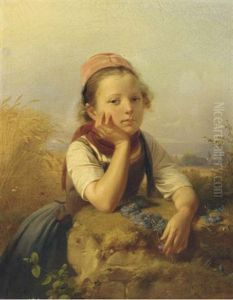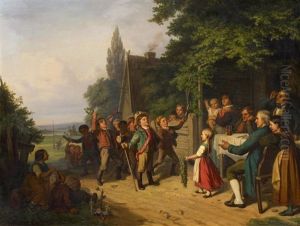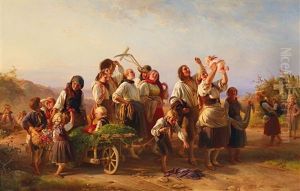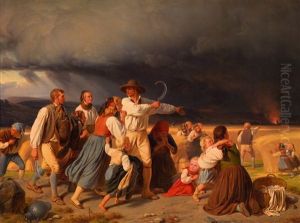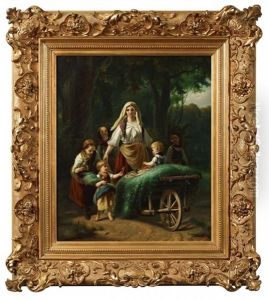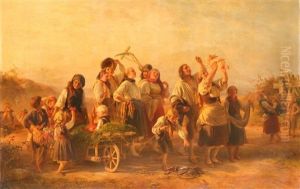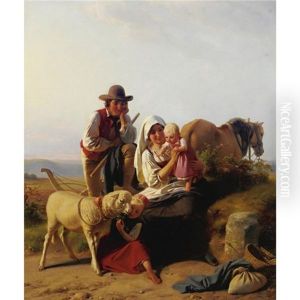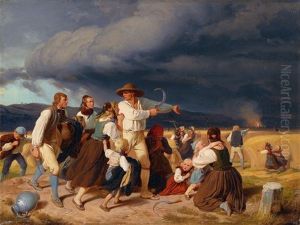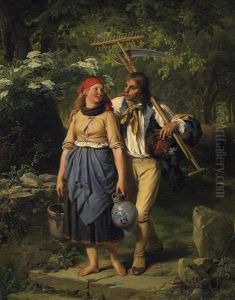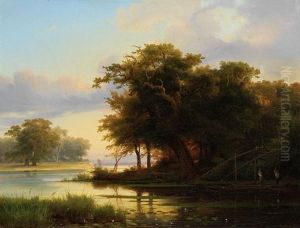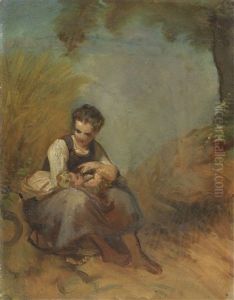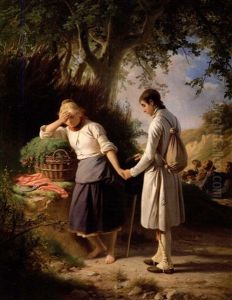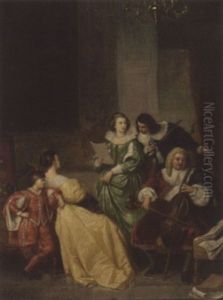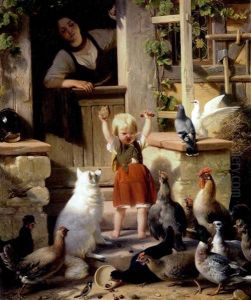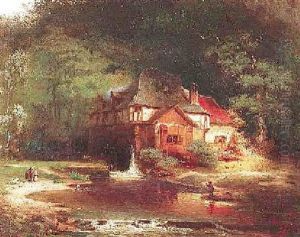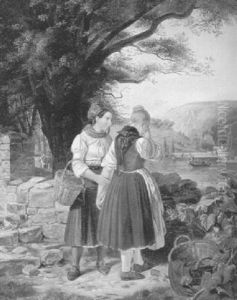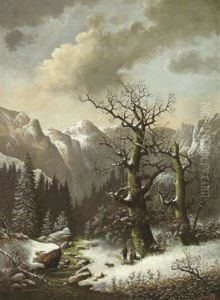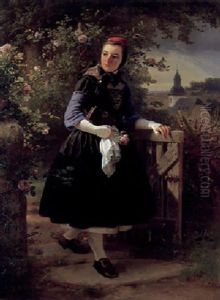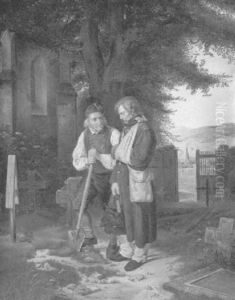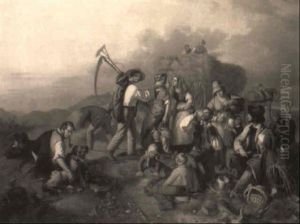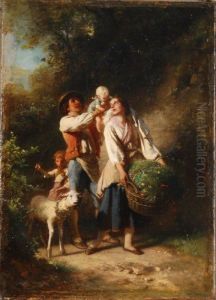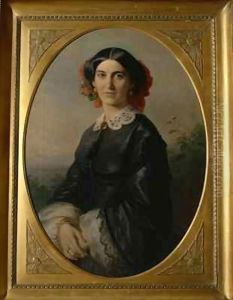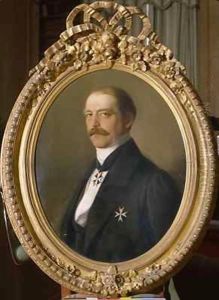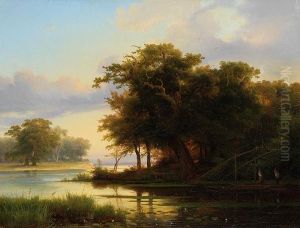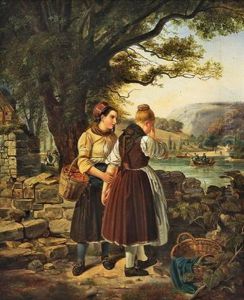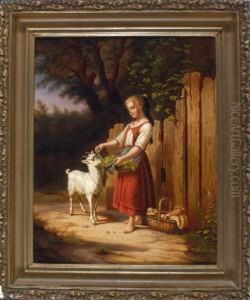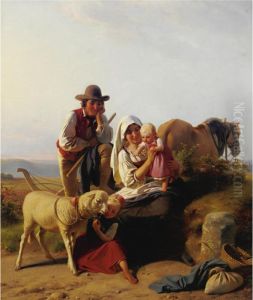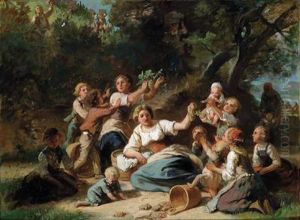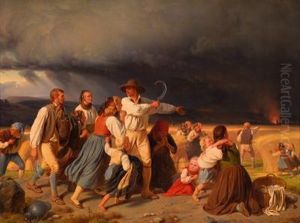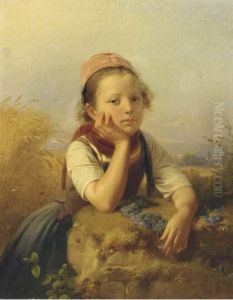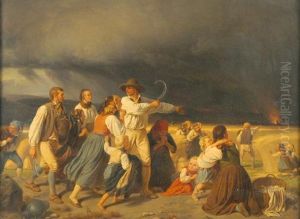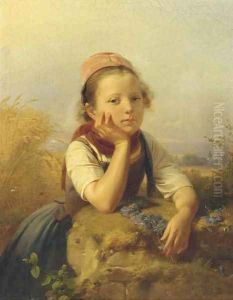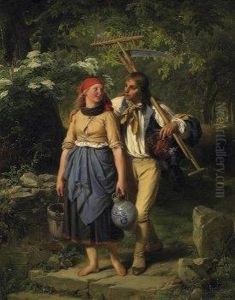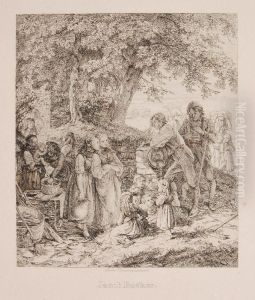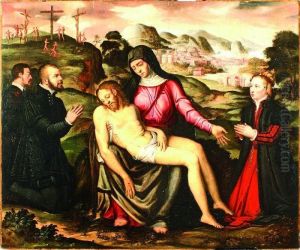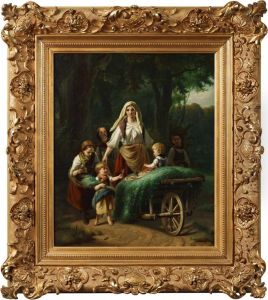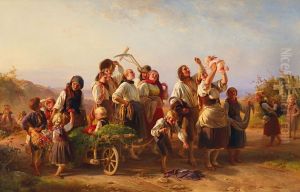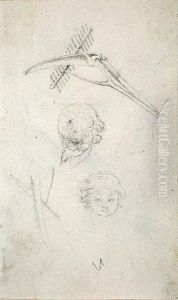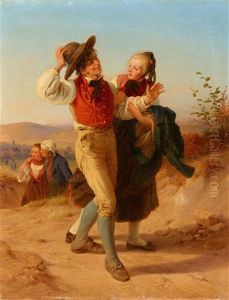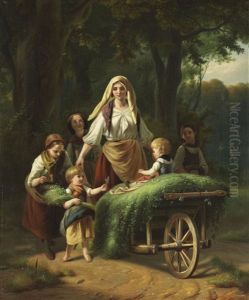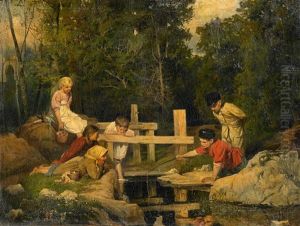Jakob Becker Paintings
Jakob Becker was a German painter and professor, renowned for his work in genre painting, portrait painting, and his contributions as an educator in the arts. Born on March 15, 1810, in Dittelsheim, Hesse, Becker developed an early interest in art. He pursued his passion by studying at the Städel Art Institute in Frankfurt, where he was significantly influenced by the works of the old masters, and later, his style evolved under the tutelage of Philipp Veit, a prominent figure in the German Nazarene movement.
Throughout his career, Becker became known for his genre paintings that vividly depicted scenes from rural and peasant life, imbuing them with a sense of realism and emotional depth. His works often reflected the social conditions and daily lives of the common people, a theme that resonated with many viewers of his time.
In 1843, Jakob Becker's dedication to art and education led him to a professorship at the Städel Art Institute, where he had once been a student. His role as an educator was pivotal, influencing a generation of artists and promoting the values of realism in art. Becker was a contemporary of the great German painters of the 19th century, and his work contributed to the richness of German art in this period.
Jakob Becker's legacy is not only found in his paintings but also in his contribution to art education. He was instrumental in shaping the curriculum at the Städel Art Institute, emphasizing the importance of drawing from life and studying the works of the old masters. Becker's dedication to his students and his craft earned him a respected place in the annals of art history.
He passed away on December 28, 1872, in Frankfurt am Main, leaving behind a body of work that continues to be admired for its portrayal of human life and its conditions. Becker's paintings remain a testament to his skill, empathy, and understanding of the human experience, marking him as a significant figure in 19th-century German art.
